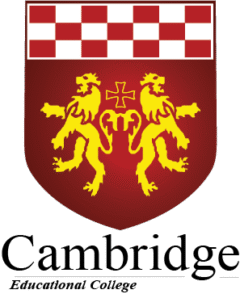If you’re thinking about pursuing a doctoral degree, including an online doctoral degree, you might be considering a PhD vs. doctorate. Perhaps you’re wondering, “What is a PhD, exactly?” or “Is a doctorate a PhD?” You’re not alone in asking these questions. In many fields of study, you can choose between a PhD degree and a professional doctorate. For instance, you could earn a Doctor of Education (EDD) or a PhD in Education.
What does PhD stand for? A PhD is a Doctor of Philosophy. In answer to the question, “Is a PhD a doctor,” the answer is yes. Both a PhD and a professional doctorate like an EDD earn you the title of “doctor.” But there are differences between the types of doctoral degrees. Learn more about a PhD vs. a professional doctorate below.
Is a Professional Doctorate the Same as a PhD?
Professional doctorate and PhD degrees are considered terminal degrees, meaning when you earn either degree, you will have achieved the highest formal degree in the field. As such, they can significantly enhance your résumé and your career. For example, according to the Bureau of Labor Statistics, doctoral degree holders earn about 20% more on average per week than those who have a master’s degree.1
When choosing a doctorate vs. PhD, consider the focus of the degree. A PhD is an academic degree focused on original research, data analysis, and the evaluation of theory. A professional doctorate focuses on applying research to practical problems, formulating solutions to complex issues, and designing effective professional practices within your field.
Is a PhD Higher Than a Professional Doctorate?
No, a PhD is not a higher degree than a professional doctorate. If you’re wondering what’s better than a PhD, both PhDs and professional doctorates are the highest level of college education that can be earned. Both degrees are doctoral degrees.
Professional doctoral degree examples include the Doctor of Business Administration (DBA), Doctor of Education (EDD), Doctor of Nursing Practice (DNP), and Doctor of Public Health (DRPH). Or you could earn a PhD in Management, PhD in Education, PhD in Nursing, or PhD in Public Health. All of these degrees are doctoral degrees, even though some are professional doctorates and some are PhDs.
Differences Between a Professional Doctorate and a PhD
When deciding between a PhD vs. a doctorate, it’s important to understand that while both are doctoral degrees, the educational goals and typical career paths for each type of degree differ.
When it comes time to choose, it’s good to know that both PhD degrees and professional doctorates have their strengths. Your decision should be based on what you want to study and how you want to use your degree. Explore the key differences between a professional doctorate and a PhD in the chart below.
Key Areas | PhD | Professional Doctorate |
Goals | Advance the field through theoretical researchConstruct new knowledge or theories | Advance the field through applying an existing body of knowledge, research, and theoryEnrich your knowledge base and research skills |
Outcomes | Conduct theoretical researchorSeek a tenured academic position in higher education | Practice in the field and advance to leadershiporTeach in higher education institutions |
Student Population | Those seeking theoretical research experience | Those seeking to solve practical problems in their field |
Admission Requirements | Master’s degree | Master’s degree |
Assessment | Dissertation | Field-related doctoral study |
Dissertation and Doctoral Study Requirements
While all colleges and universities establish their own policies on how you earn a degree, the methods by which you earn a PhD or a professional doctorate almost always differ. Though it can vary by degree program and university, PhD candidates usually complete a dissertation while many doctoral candidates complete a doctoral study.
Doctoral Study
A doctoral study requires you to identify a real-world problem within your field and research it thoroughly with the intent of uncovering new understandings that can eventually lead to new solutions. Completing the study takes multiple steps, which may include:
- Creating a proposal that describes the problem you want to solve, the design of your study, and the methodology you’ll use.
- Orally defending your proposal to the committee.
- Collecting data and writing findings.
- Orally defending your findings to the committee.
Dissertation
A PhD dissertation requires you to conduct research into an approved area of study within your discipline. While this can be in an area that has not yet been explored, it often complements existing knowledge by adding new or missing research. Completing the dissertation takes multiple steps, including:
- Drafting a dissertation prospectus and orally defending your proposal to a committee.
- Completing the research.
- Writing the research dissertation, which includes your methods, findings, literature review, and conclusions.
- Orally defending your completed dissertation to a committee.
What Do You Learn When Studying for a PhD vs. Doctorate?
A PhD is designed for college graduates who are interested in doing original and applied research that tests theory and adds to the existing knowledge in their particular field or discipline. A PhD program can help you learn how to:
- Analyze theories and concepts within your field.
- Evaluate the relevance of seminal, current, and emerging theories within your field.
- Assess identified gaps in the current research literature.
- Advance the body of knowledge in your field through original research.
- Communicate effectively to an academic audience and general stakeholders.
A professional doctorate is designed for working professionals who have practical experience in their field and want to increase their knowledge, advance their careers, and translate their work experience into a higher position of credibility, leadership, and influence. A professional doctorate program can help you learn how to:
- Evaluate the relevance of current and emerging theories and practices within your field.
- Formulate effective solutions to complex, real-world problems common to your field.
- Apply current research to practical problems in your field.
- Design rigorous research that expands the professional body of knowledge in your field.
Fellowships
Not all universities offer fellowship programs; however, many do. And while fellowships are often offered to PhD students conducting research, there are also programs designed for professional doctoral degree candidates.
How You Can Earn Your PhD or Professional Doctoral Degree
PhD degrees and professional doctorates have this in common: You can earn either through an online college. Why should you add online options to your list of universities to consider? Because online education provides a number of benefits you won’t enjoy at even an exceptional campus-based university.
Liverpool College For International Studies is an accredited online College offering professional doctorates When you choose LPCIS, you won’t have to worry about moving to be close to campus. You won’t even have to drive to a campus. Instead, when you earn a degree online, you can complete the majority of your coursework from home. Plus, both online PhD programs and online professional doctorate programs often offer a flexible format that doesn’t require you to attend class at a specific time of day. With LPCIS online degree programs, you can arrange your learning schedule so that it works with your full-time job and family responsibilities.
Visit Liverpool College For International Studies Web to see the wide range of professional doctorate and PhD programs offered. Find out how LPCIS numerous support opportunities, from doctoral peer mentors to knowledgeable financial advisors, can help make your doctoral degree experience a success. For more details, explore LPCIS There, you’ll learn more about what your educational path could look like, what it takes to earn a doctorate, and how to fund your degree.
Still have questions? Simply complete a quick form online to Request information. Whether you have questions about degree programs, admissions, financial aid, or any other details, a Liverpool College For International Studies Enrollment Specialist will respond with all of the information you need.
Liverpool College For International Studies is an accredited institution offering a range of PhD and professional doctoral programs. Expand your career options and earn your degree in a convenient, flexible format that fits your busy life.




